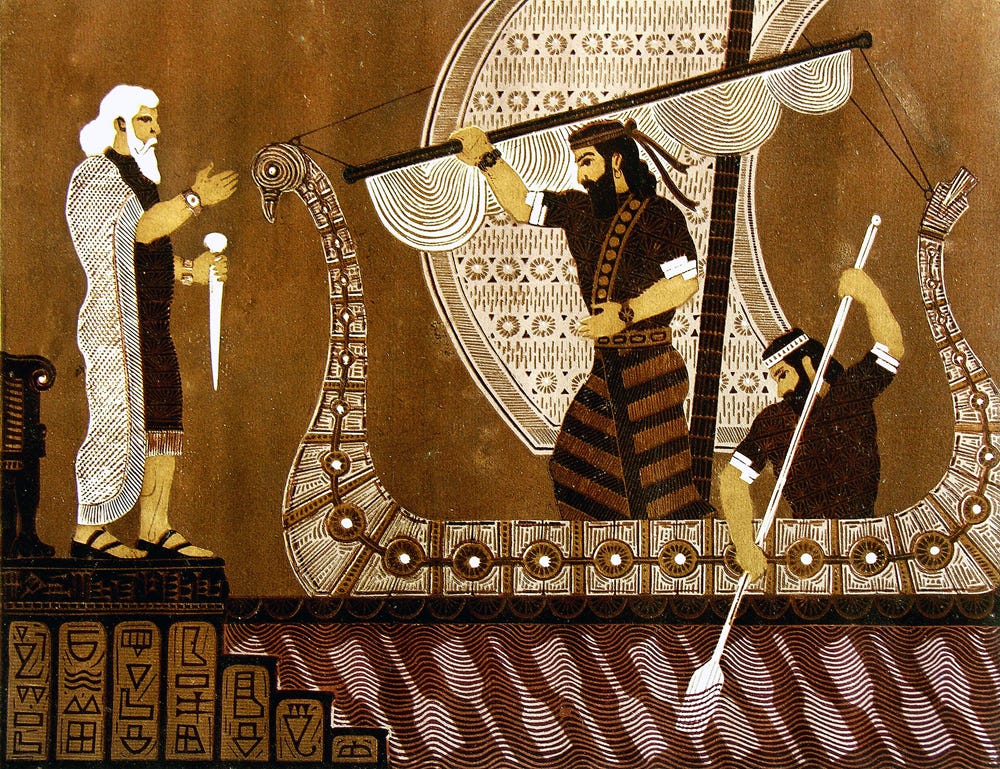The Epic of Gilgamesh: The World’s First Grand Tale of Adventure
One of the world’s oldest forms of literature reveals universal truths about our mortality, grief in the loss of others, and the meaning of life.

Siduri (divine winemaker)
“[W]hy do you come here wandering over the pastures and wilderness in search of the wind?”
Gilgamesh:
“Why should I not wander over the pastures and wilderness in search of the wind?”
Many ancient texts, including The Epic of Gilgamesh, have been unearthed through painstaking arch…
Keep reading with a 7-day free trial
Subscribe to Those Who Wander to keep reading this post and get 7 days of free access to the full post archives.




